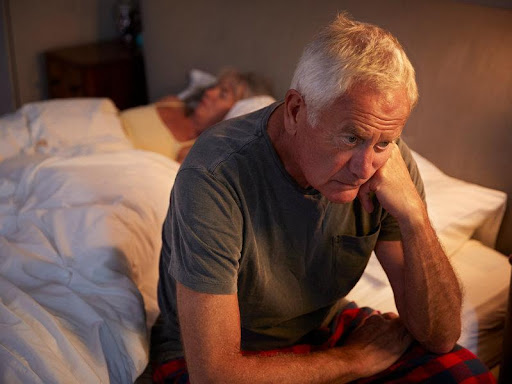
The Importance of Mental Health
According to the World Health Organization, about 15 percent of adults 60 and older suffer from a mental health or neurological disorder. Older adults are prone to developing mental health disorders later in life, primarily because of significant life changes and chronic health conditions. May is Mental Health Awareness Month. It’s the perfect time to learn about mental health and the most common disorders among seniors.
What is Mental Health?
Mental health is a broad term referencing a person’s emotional, psychological, and social well-being and its effect on how the individual feels, thinks, and acts. Anyone is at risk of a mental health disorder, but seniors tend to be at a higher risk because of the significant physical and social changes they undergo in a short amount of time.
The average American has a fairly routine life for most of adulthood. They tend to have a job they go to regularly, a family they live with, friends they socialize with, and hobbies they enjoy. However, as we get older, those routine parts of our lives tend to change. We retire, children move out, spouses pass, friend circles get smaller, and it gets more challenging to partake in certain hobbies. There’s also the added element of physical changes and the development of health conditions like diabetes or heart disease. All these factors can play a part in a senior’s mental health.
Common Mental Health Conditions Among Seniors
There’s still a stigma surrounding mental health, but mental health conditions are common among people of all ages, even seniors. A few conditions prevalent among seniors include depression, anxiety, dementia, and bipolar disorder.
Depression
Depression is a mood disorder where a person feels sad, withdrawn, or hopeless for an extended time. Depression is more likely to develop in seniors who experience a medical condition such as stroke or cancer, have a family history of depression, experience high-stress levels, feel socially isolated or lonely, or struggle with substance dependency. Clinical depression is severe and not a normal part of aging. However, treatments such as therapy and medications are available to help.
Anxiety
Anxiety is the feeling of excessive nervousness or stress. It can also cause headaches, sweating, or chest pains. According to a recent study, up to 13 percent of older adults meet a diagnosable anxiety disorder criterion. More than 27 percent of seniors have symptoms of anxiety that significantly impact their daily activities. The most common anxiety disorders are generalized anxiety disorder and phobias. However, it’s not uncommon for an aging individual to experience post-traumatic stress disorder, obsessive-compulsive disorder, or panic disorder. Anxiety disorders have similar risk factors to depression and, like depression, are treatable with different types of therapy and medication.
Bipolar Disorder
Bipolar disorder is a condition where the individual experiences dramatic mood swings. During a depressive episode, an individual may feel hopeless, lack energy, withdraw from activities, lack appetite, or have trouble sleeping. During a manic episode, the person will feel overjoyed, have lots of energy, and become easily distracted or agitated. According to one study, about 25 percent of the population struggling with bipolar disorder is older than 60. It’s unclear what causes bipolar disorder, but it’s believed to be a mix of environmental factors and genetics. Bipolar disorder is not a normal part of aging, and there are treatment options available to help manage symptoms.
How Visiting Angels Can Help
If you’re an older adult living with a mental health condition and could use assistance and companionship at home, the team at Visiting Angels can help. Our compassionate caregivers provide at-home services, including light housekeeping, meal preparations, medication reminders, transportation, and more.
Our Cullman office serves those in Cullman, Etowah, Walker, Marshall, and Blount counties. If you’d like to learn more about our services, contact us online or call us at 256.734.6600.
